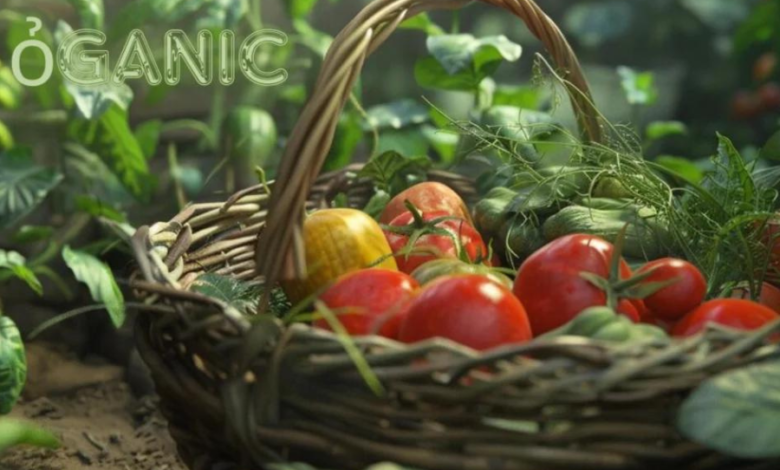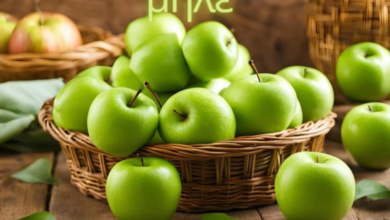
Introduction
In today’s world, the term “Ỏganic” has become a familiar part of our everyday vocabulary, influencing everything from the apples we pick up at the grocery store to the cotton T-shirts we choose to wear. But what exactly does “Ỏganic” mean? This detailed guide explores the essence of Ỏganic , covering everything from its definitions and practices to its benefits and important considerations.
What is Ỏganic?
The term “natural” refers to products that are grown and processed using Ỏganic farming methods. These methods emphasize the use of natural substances and processes in growing crops and raising livestock. The main goal of Ỏganic farming is to maintain and enhance the health of ecosystems and all living organisms involved.
Recognizing the Ỏganic
“Natural” isn’t just a trend; it’s a lifestyle choice that’s gaining popularity among health-conscious individuals. But what does “natural” really mean? In the context of food and products, it refers to items grown or produced without synthetic pesticides, fertilizers, GMOs, or harmful chemicals. Essentially, it’s about returning to nature in its purest form.
When you see the “natural” label on food or skincare products, it signifies that they were made using sustainable practices that prioritize environmental conservation and animal welfare. Choosing natural means opting for higher standards and supporting farmers who are committed to the well-being of both consumers and the planet.
Understanding what “natural” means helps you make informed choices that align with your values and contribute to a healthier ecosystem for future generations.
Why Choose Ỏganic?
There are several compelling reasons to choose Ỏganic products:
- Potential Health Benefits: Some studies suggest that Ỏganic foods may have higher levels of certain antioxidants and nutrients compared to conventionally grown foods. Additionally, by avoiding synthetic pesticides and additives, you could potentially reduce your exposure to harmful substances.
- Environmental Benefits: Ỏganic farming practices promote biodiversity, improve soil health, and reduce water pollution. This helps create a healthier environment for everyone.
- Animal Welfare: Ỏganic farming emphasizes the well-being of animals, providing them with more space and natural living conditions. This approach prioritizes humane treatment and better overall animal health.
The Advantages of Ỏganic Goods
Health Benefits
Many people choose Ỏganic products primarily for their perceived health benefits. Ỏganic foods are free from synthetic chemicals that may be harmful to health. Research indicates that Ỏganic foods often have higher levels of certain nutrients, such as antioxidants, which contribute to overall well-being.
Environmental Benefits
Ỏganic farming practices aim to minimize pollution, conserve water, reduce soil erosion, enhance soil fertility, and use less energy. By avoiding synthetic pesticides and fertilizers, Ỏganic farming helps protect the environment and promote biodiversity. This approach is increasingly important in today’s world, where environmental sustainability is a top priority.
Economic Benefits
Although Ỏganic products can be more expensive than conventional ones, they significantly benefit farmers’ economic well-being. Ỏganic farming methods often require more labor and careful management, creating jobs and supporting rural economies. Additionally, consumers are often willing to pay a premium for Ỏganic products, which can lead to higher profits for farmers.
The Difficulties of Ỏganic Agriculture
Certification and Regulation
One major challenge in the Ỏganic industry is the certification process. Achieving Ỏganic certification can be both time-consuming and costly. Farmers must adhere to strict regulations and undergo regular inspections to ensure compliance. This can be a significant hurdle for small-scale farmers who may lack the resources to manage the certification process effectively.
Market Competition
The growing demand for Ỏganic products has led to increased market competition. Large corporations are now entering the Ỏganic sector, which can pose challenges for smaller, independent farmers. This heightened competition can drive prices down and reduce profit margins for smaller Ỏganic producers.
Consumer Education
Despite the rising popularity ofỎganic products, many consumers still lack a clear understanding of what “Ỏganic ” really means. Misconceptions and misinformation can lead to confusion and skepticism. Therefore, educating consumers about the benefits and principles of Ỏganic farming is crucial for the continued growth of the industry.
Effect on the Health of Humans
Ỏganic food is often celebrated for its health benefits. By reducing exposure to harmful chemicals and potentially offering higher nutritional value, Ỏganic products can positively affect human health.
Reduced Exposure to Chemicals
Opting for Ỏganic products lowers your exposure to residues from synthetic pesticides and fertilizers, which have been linked to various health issues.
The Nutritious Advantages of Ỏganic Food
Nutritional Value
There is some evidence suggesting that Ỏganicfoods may have higher levels of certain nutrients, such as antioxidants. However, more research is needed to confirm these findings conclusively.
Long-Term Health Implications
While there is ongoing debate about the immediate health benefits of Ỏganic foods, there is broad agreement that reducing chemical exposure has positive long-term health implications.
Economic Impacts
The Ỏganic market has experienced significant growth, benefiting both farmers and economies.
Market Growth of Ỏganic Products
Rising consumer demand for Ỏganic products continues to drive a robust market that shows no signs of slowing down.
Economic Benefits for Farmers
Switching to Ỏganic farming can lead to increased profitability by allowing farmers to charge premium prices. Those who adopt Ỏganic methods often find new market opportunities and higher earnings.
Price Premiums and Consumer Willingness to Pay
Although Ỏganic products typically come with a higher price tag, many consumers are willing to pay more for the perceived health and environmental benefits they provide.
Challenges in Ỏganic Farming
Despite its benefits, Ỏganic farming faces several challenges:
Higher Production Costs
Ỏganic farming often incurs higher costs due to labor-intensive practices and the need for Ỏganic inputs.
Certification Barriers
The certification process can be complex and expensive, presenting a significant hurdle for small-scale farmers.
Market Competition
Ỏganic farmers must compete with conventional producers and sometimes face doubts about the authenticity of their products.
The Prospects of Ỏganic
As interest in Ỏganic products continues to grow, the industry is poised for significant expansion. However, it’s crucial to manage this growth carefully to uphold the principles of Ỏganic farming. This involves maintaining strict certification standards, supporting small-scale farmers, and continuing to educate consumers about the benefits of organic products.
Innovations in Organic Farming
The future of oỎganic farming is expected to feature ongoing advancements and improvements in sustainable practices. This includes exploring new methods for pest control, soil management, and crop rotation. These innovations aim to enhance the efficiency and effectiveness of Ỏganic farming, making it more accessible and sustainable for both farmers and consumers.
Policy Support
Government policies and regulations will play a crucial role in shaping the future of organic farming. Supportive policies can help lower certification barriers, provide financial incentives for Ỏganic farmers, and encourage research and development in Ỏganic agriculture. By creating a favorable policy environment, governments can significantly contribute to the continued growth and success of the Ỏganic industry.
Conclusion
In summary, Ỏganic products offer numerous benefits, including avoiding genetically modified organisms that could potentially harm health, preventing inhumane treatment of animals, and employing more environmentally friendly farming practices. While there are challenges associated with Ỏganic methods, they represent positive efforts aimed at improving health and sustainability for both present and future generations.
Ultimately, choosing Ỏganic is a personal decision. By understanding the principles, practices, and implications of Ỏganic farming, you can make informed choices that align with your values and preferences. Whether you choose to go fully Ỏganic or make gradual changes, each step towards a cleaner, greener future contributes to a healthier planet.
FAQs
1. What does “organic” mean?
“Organic” refers to products that are grown and processed using methods that avoid synthetic pesticides, fertilizers, GMOs, and harmful chemicals. Organic farming emphasizes the use of natural substances and processes to maintain ecosystem health and animal welfare.
2. What are the main benefits of choosing organic products?
Choosing organic products can offer several benefits:
- Health Benefits: Reduced exposure to harmful chemicals and potentially higher nutritional value.
- Environmental Benefits: Improved soil health, reduced water pollution, and enhanced biodiversity.
- Animal Welfare: More humane treatment of animals with better living conditions.
3. How do organic foods impact human health?
Organic foods are often associated with reduced exposure to harmful chemicals and higher levels of certain nutrients, such as antioxidants. While research is ongoing, many believe that organic foods contribute positively to long-term health by minimizing chemical exposure.
4. Why are organic products more expensive?
Organic products often cost more due to higher production costs. Organic farming requires more labor, careful management, and organic inputs, which can increase the price. Additionally, certification processes and market competition can also contribute to higher costs.
5. What challenges does organic farming face?
Organic farming faces several challenges:
- Certification and Regulation: The certification process can be time-consuming and costly.
- Market Competition: Increased competition from large corporations and conventional producers.
- Higher Production Costs: Organic farming often involves higher costs for labor and inputs.
6. How can I identify organic products?
Organic products are typically labeled with certification logos or terms such as “organic” or “certified organic.” These labels indicate that the products meet specific organic farming standards and have undergone the necessary certification processes.
7. What role do government policies play in organic farming?
Government policies can support organic farming by reducing certification barriers, offering financial incentives, and promoting research and development in organic agriculture. A supportive policy environment helps foster the growth and success of the organic industry.
8. Are there any long-term benefits to organic farming for the environment?
Yes, organic farming practices contribute to long-term environmental benefits by enhancing soil fertility, conserving water, reducing pollution, and promoting biodiversity. These practices help build a more sustainable and resilient ecosystem.
9. How can I make informed decisions about organic products?
To make informed decisions, educate yourself about the principles and practices of organic farming, consider your values and preferences, and weigh the benefits and challenges of organic products. Understanding these factors will help you choose products that align with your goals for health and sustainability.
10. Can I transition to organic gradually?
Yes, you can make gradual changes by starting with specific organic products or categories and expanding as you become more comfortable. Every step towards choosing organic contributes to a healthier and greener planet.
Stay informed about celebrity events and happenings on usatimemagazinepro.com



